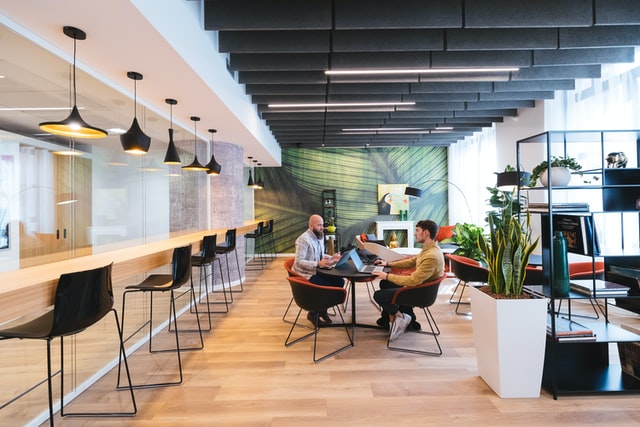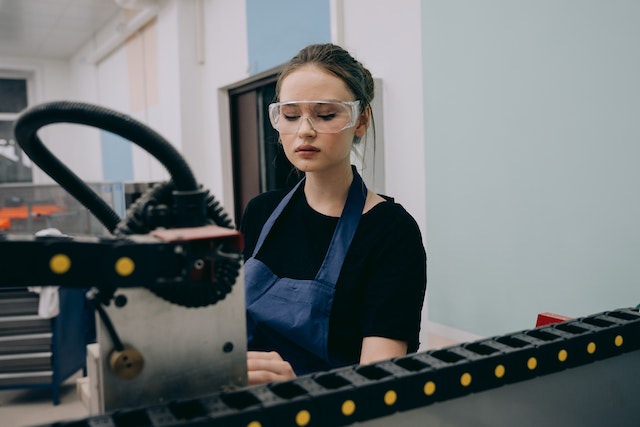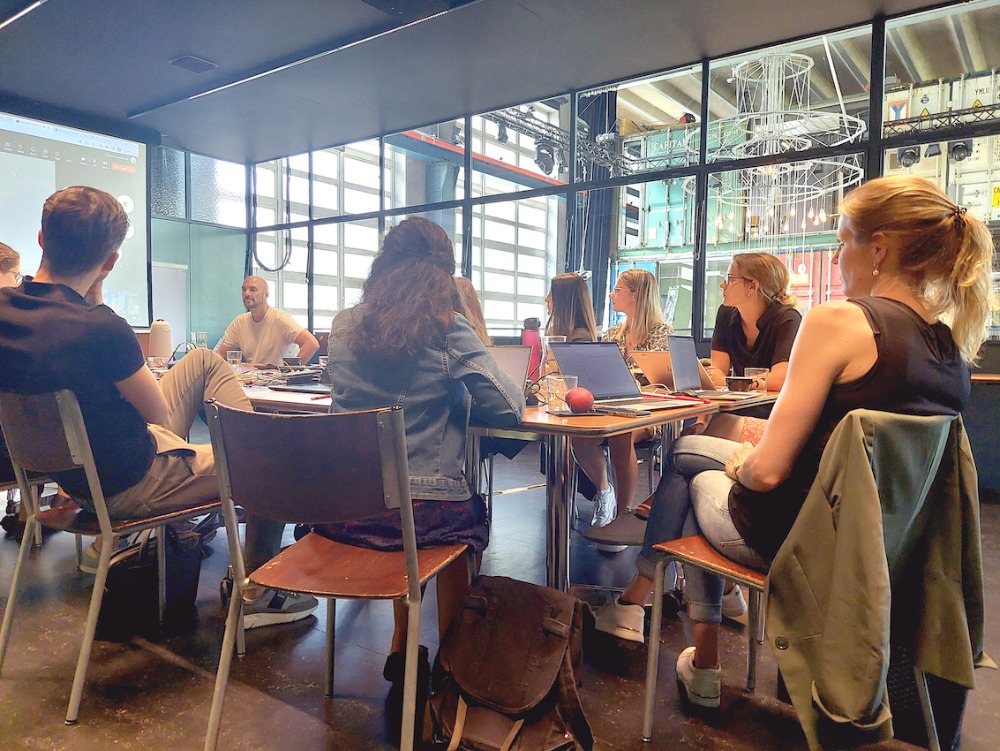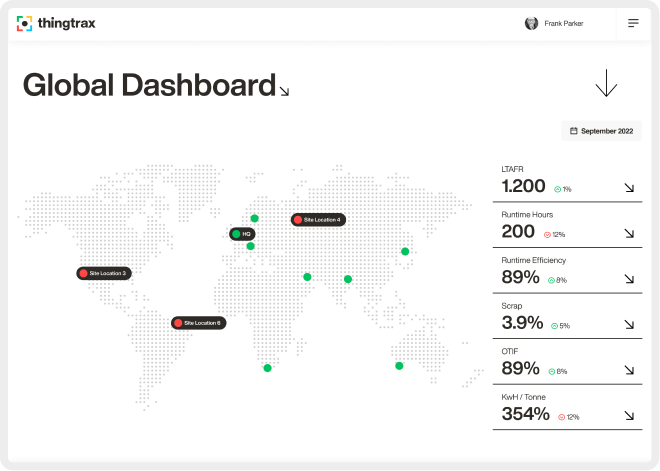Reducing Carbon Footprint - Studies Support Flexible Co-working as Solution

by Startacus Admin
Andrea Szell, Founder of Spare Desk shares some insights on how flexible co-working can benefit both the planet and the health and wellbeing of employees...
 As hundreds of UK employees return to enduring their commute to work, an important question is raised - is this necessary? Already in the press, there are talks about hybrid working and the cost saving benefits to employers of having them work from home or local workspaces, but few are discussing the environmental savings of this new way of work. Yet.
As hundreds of UK employees return to enduring their commute to work, an important question is raised - is this necessary? Already in the press, there are talks about hybrid working and the cost saving benefits to employers of having them work from home or local workspaces, but few are discussing the environmental savings of this new way of work. Yet.
With the UK heading towards net zero in 2050, many eminent UK businesses are looking deeper into ways to reduce their carbon footprint. Employee commuting is one of the aspects now being recorded. Schemes have been introduced, with interest free train tickets, discounted bus tickets, bikes for work, electric only company cars - but none of them include reducing the actual distance of office.
Organisations around the UK desperately need to find a way to effectively cut down these commuting and work-related journeys without making any major sacrifices to staff morale, mental health, productivity and output.
From research conducted in 2019, it was found that the average employee spends 62 minutes a day commuting, with 3.7 million people in the UK travelling for longer than 2 hours a day.
The Solution
Due to the pandemic, flexible coworking has already been introduced to many companies, wanting to ensure safety during the COVID risk. However, this could also be part of the solution for businesses seeking to reduce their carbon footprint in line with the government and their own targets.
.jpg) Working in an office space, surrounded by co-workers, has proved to be an important element in mental health. So without a doubt, requesting the country to work from home wouldn’t work for the masses. This is where a middle ground is met.
Working in an office space, surrounded by co-workers, has proved to be an important element in mental health. So without a doubt, requesting the country to work from home wouldn’t work for the masses. This is where a middle ground is met.
By providing employees with the opportunity to work in local workspaces or at local
‘spare desks’ rented out by companies with space, it provides more flexible working arrangements that have many benefits.
An IWG survey found only 8% of British workers are now prepared to travel more than an hour to work, with 77% of workers claiming a more convenient office is a must for their next job. More local offices mean 7,416 hours will be reduced in commuting time, equating to 118 metric tonnes of carbon emissions per centre each year.
Other Benefits
The environment and employees' time aren't the only positives of this way of working. Inner city congestion has become a major issue in modern day living, with traffic congestions left, right, and centre. By creating more local work places, this is significantly reduced, with less cars on the road for shorter periods.
Not only this, local economies everywhere will receive a boost from this work strategy. According to a 2019 economy survey conducted by Regus, the opening of flexible workspaces leads to the creation of 121 jobs. It also adds $9.62 million to our local economies.
Going Forward
With more and more employment contracts containing flexible work arrangements and offices, you can do more than you may have first thought to reduce your own carbon footprint.
If you are an employer considering flexible offices, why not pass the hybrid working cost savings into something even more positive than a higher income? These savings could be used to motivate employees to reduce their commute, and therefore their carbon footprint.
If this sounds like an appealing concept, check out Pure Planet as an example.
Pure Planet has a zero commute policy. They calculated the total carbon emissions for the commute of the workforce, which equated to 480 metric tonnes of CO2 per year. To counterbalance this, Pure Planet uses carbon credits purchased in the Amazon rainforest. The organisation expects to undertake this offset process at least annually.*
.jpg) With climate change on the agenda for many UK companies, now is the time to look at the daily commute as part of the issue and establish a thoughtful policy that benefits both the planet and the health and wellbeing of your staff. What will you put
With climate change on the agenda for many UK companies, now is the time to look at the daily commute as part of the issue and establish a thoughtful policy that benefits both the planet and the health and wellbeing of your staff. What will you put
in place now?
ABOUT THE AUTHOR
Andrea Szell is an experienced project manager, entrepreneur and founder of Spare Desk. Spare Desk is a platform that enables individuals and businesses who would like to list and monetise their unused workspaces to connect to users who need on-demand workspaces tailored to their requirements.
Subscribe to our newsletter
If you would like to receive our startup themed newsletter, full of the latest startup opportunities, events, news, stories, tips and advice, then sign up here. How Manufacturing Businesses Can Reduce Energy Costs
How Manufacturing Businesses Can Reduce Energy CostsGot a business in the manufacturing sector? These tips on how you can reduce energy costs while being more sustainable are well worth a read...
 SureIn Secures €4M to Close the SMB Insurance Gap
SureIn Secures €4M to Close the SMB Insurance GapInnovative InsurTech startup SureIn announces a €4M Seed round to further its mission of making insurance easy, transparent and hassle-free for SMBs.
 How IoT Is Revolutionising Consumers' Daily Lives
How IoT Is Revolutionising Consumers' Daily Lives Nassia Skoulikariti, Director of IoT Programmes, Mobile Ecosystem Forum shares some insights on how IoT is having a significant impact on all our lives.
 How to invest in tech companies with the help of AI
How to invest in tech companies with the help of AIRoger James Hamilton, Founder and CEO of Genius Group, a world-leading entrepreneur Edtech and education group, discusses how introducing a globalized curriculum will help better prepare students.
 SuperFi raises $1M pre-seed funding round
SuperFi raises $1M pre-seed funding roundSuperFi, the debt prevention platform, has announced a $1m pre-seed funding round to support people during the cost of living crisis.
 Startups rely on AI & sustainability for new partnerships
Startups rely on AI & sustainability for new partnerships41 startups from 13 countries, including the UK, have been selected for the 8th Kickstart Innovation program, one of Europe’s leading innovation platforms.
 Another Round closes £300k Seed round to revolutionise personal training
Another Round closes £300k Seed round to revolutionise personal trainingPersonal training platform Another Round has secured £300k in its latest fundraise, including investment from angels and its community.
 Thingtrax Secures £4.3M
Thingtrax Secures £4.3MThingtrax Secures £4.3M to Empower Manufacturers to Build the Factories of the Future
 A measure of inflation relief for small firms
A measure of inflation relief for small firmsA measure of inflation relief for small firms sees transport costs fall but service price increases remain elevated
 A look at HR tech startup HR DataHub
A look at HR tech startup HR DataHubBedfordshire-based HR tech startup HR DataHub has built a range of tools for HR departments
Published on: 17th June 2022
If you would like to enable commenting via your Startacus account, please enable Disqus functionality in your Account Settings.







- SureIn Secures €4M to Close the SMB Insurance Gap 15th Aug 2023 Innovative InsurTech startup SureIn announces a €4M Seed round to further its mission of making insurance easy, transparent and hassle-free for SMBs.
- SuperFi raises $1M pre-seed funding round 28th Jul 2023 SuperFi, the debt prevention platform, has announced a $1m pre-seed funding round to support people during the cost of living crisis.
- Startups rely on AI & sustainability for new partnerships 27th Jul 2023 41 startups from 13 countries, including the UK, have been selected for the 8th Kickstart Innovation program, one of Europe’s leading innovation platforms.
- Another Round closes £300k Seed round to revolutionise personal training 21st Jul 2023 Personal training platform Another Round has secured £300k in its latest fundraise, including investment from angels and its community.








 Daniel Dierkes, David Schara, and Maximilian Geißinger 2.jpeg)

.jpg)




















